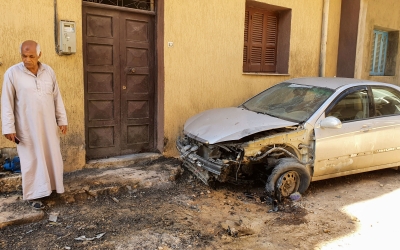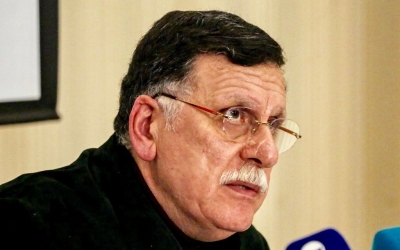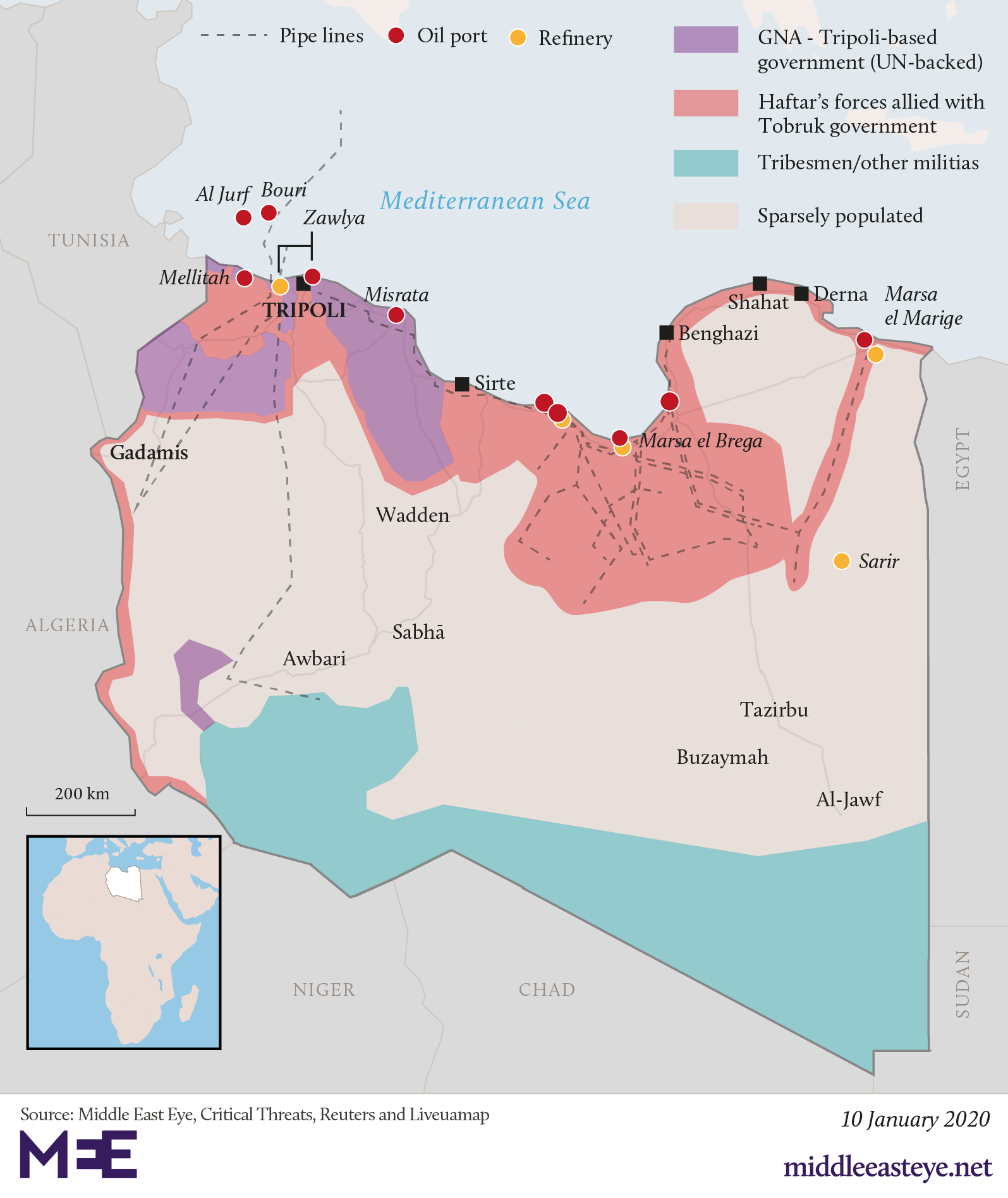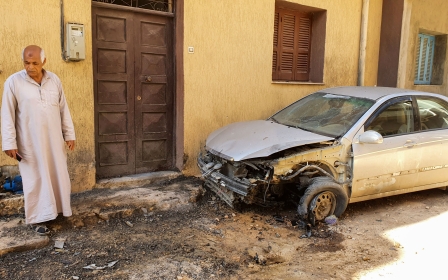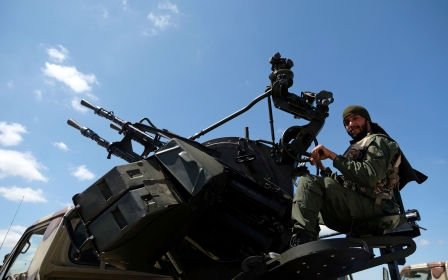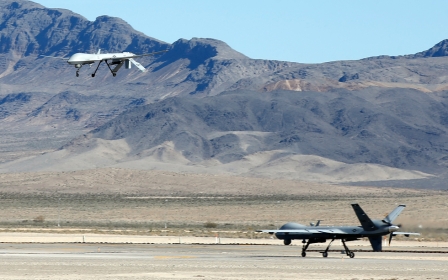Libyan PM denounces Haftar as 'war criminal'
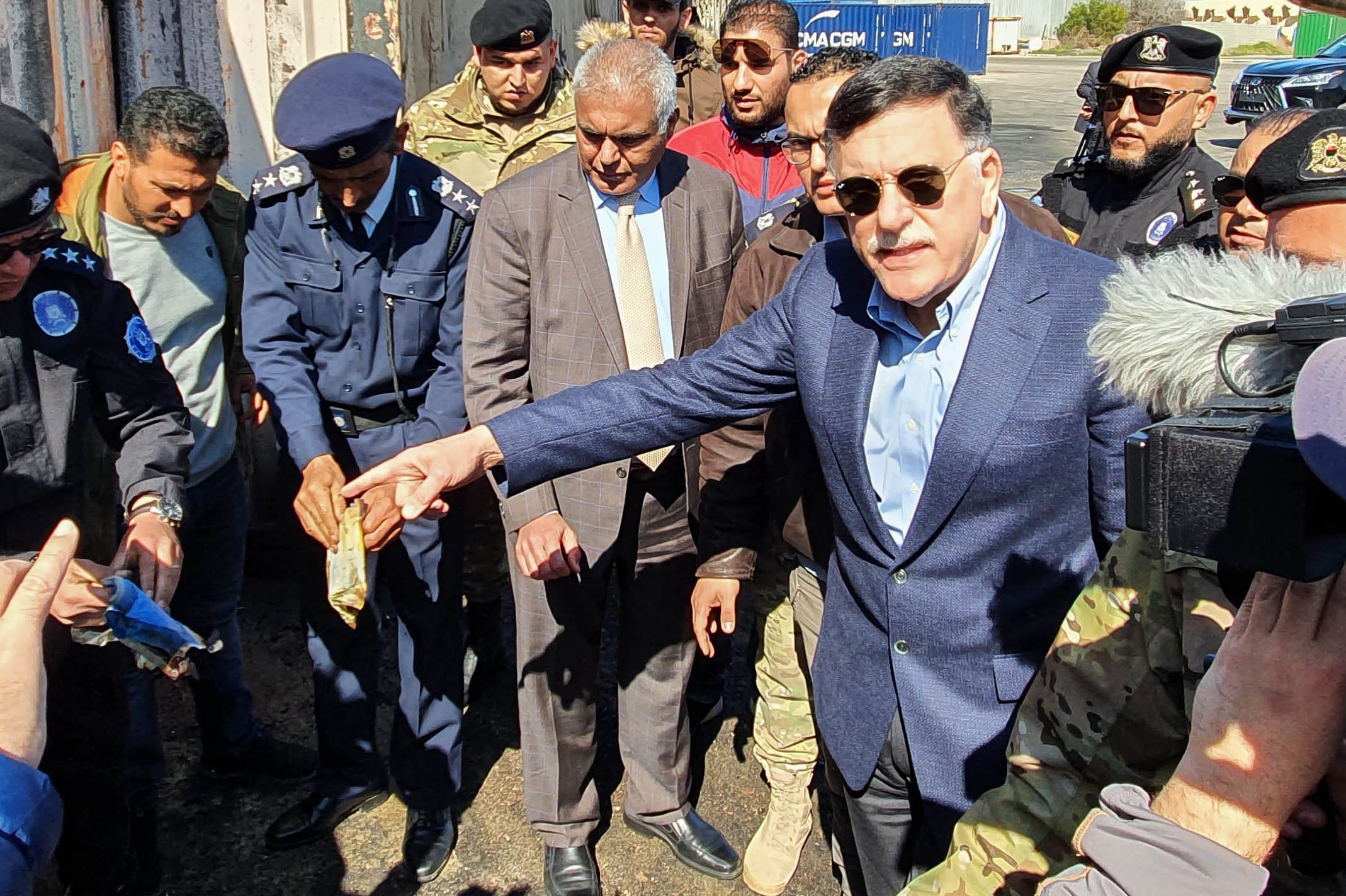
The head of Libya's internationally recognised government has denounced the shelling of civilian areas and airports by forces loyal to Khalifa Haftar, labelling the eastern military commander a "war criminal".
Speaking to the UN Human Rights Council on Monday, Fayez al-Sarraj also criticised the international community's inaction of failing to stem the violence, which has claimed more than 1,000 lives and displaced at least 140,000.
New MEE newsletter: Jerusalem Dispatch
Sign up to get the latest insights and analysis on Israel-Palestine, alongside Turkey Unpacked and other MEE newsletters
"Many have lost their lives. Families have been displaced. Children have been orphaned because of the aggression perpetrated by the war criminal Khalifa Haftar," Sarraj told the world body in Geneva.
"The entire world has been able to see the escalation in hostilities and attacks against the capital Tripoli since April 4, 2019. Until today, we have not seen action by the international community."
Haftar launched an offensive on Tripoli last April but after making rapid advances, his forces have stalled on the outskirts of the Libyan capital.
Sarraj's Government of National Accord (GNA) recently requested military assistance from the Turkish government, with Ankara sending military advisers and experts to Libya to help shore up the beleaguered government.
International inaction is 'inhumane'
Meanwhile, Mohamed Taha Siala, the foreign minister for the UN-recognised government, voiced particular criticism about international inaction to force an end to Haftar's oil blockade, warning of the dire humanitarian consequences of cutting off the country's main source of income.
The international community, he said, must "instruct opening the oil fields and opening the ports to feed the Libyan people".
Libya's oil output has fallen sharply since 18 January when Haftar's forces launched a blockade of oil terminals and oil fields.
Earlier this month, the state-run National Oil Corporation (NOC) said that crude output had dropped to 163,684 barrels per day (bpd).
Oil is the main source of national income for the country and before the blockade, Libya was producing 1.2 million bpd.
Siala told reporters in Geneva that major powers had acted quickly to force an end to a previous attempt by Haftar to blockade Libya's oil, but that today there seemed to be less interest in boosting oil supplies on the global market.
"I know they don't want the prices in the market to drop by putting in the market around one million barrels," he said, suggesting that "maybe this is behind the reason" for the international inaction.
"If it is the reason, this is inhuman," he said.
The GNA leaders' comments came as political talks are set to kick off between the two sides in Geneva on Wednesday.
UN envoy Ghassan Salame, who was scheduled to meet with Sarraj later on Monday, has said the political discussions would go ahead despite the hostilities on the ground.
But Siala said that the GNA had yet to receive an invitation to attend and that it remained to be seen whether the talks would go ahead as planned.
Middle East Eye delivers independent and unrivalled coverage and analysis of the Middle East, North Africa and beyond. To learn more about republishing this content and the associated fees, please fill out this form. More about MEE can be found here.


